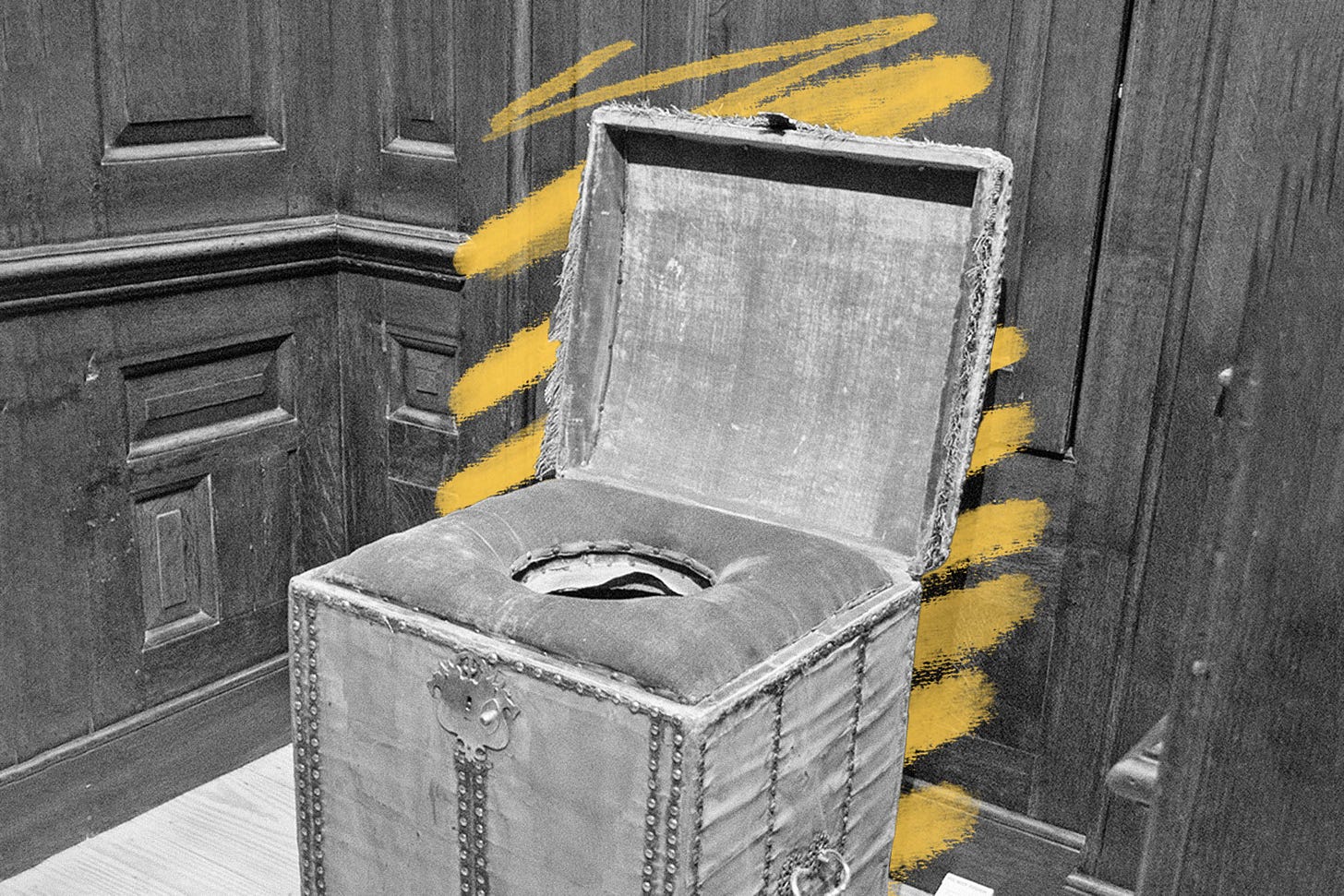You know an odd feeling?
Sitting on the toilet eating
a chocolate candy bar.
—George Carlin
A highly prestigious position among those serving the kings of England, beginning with King Henry VII, was that of the groom of the stool, who helped the king attend to his, well, stools. He also tended to related business, from getting him on and off the thing to, possibly, wiping his bottom.
The “close stool” was a handy-dandy portable toilet so that when the king was on the battlefield he could poop in comfort when taking breaks from killing people. One of Henry VIII’s stools, according to History, “was trimmed in ribbon and gilt nails, and came with a leather carrying case.”
Have toilet, will travel.
The guy who carried out this task was a man of influence, closely advising the king on state matters. Henry VIII’s first bottom-wiper handled his personal business, including setting up his trysts—and got rich doing it. Another one controlled his royal signature stamp.
The queens that came along in the 16th century declined this particular tradition. Queens had always had ladies to help them with dressing and sorting their furs and giving birth and such—and, presumably, were perfectly capable of wiping their own behinds.
The uptight Stuarts changed the term to “groom of the stole” since the person in this role also helped the king put his clothes on. And by 1901, the job was eliminated altogether.
Lagniappe: Emily Warren Roebling oversaw the construction of the Brooklyn Bridge, which was finally completed in 1883 after 14 years mired in corruption and death—including that of her husband, the original architect assigned to the job, along with at least 20 construction worker who died during the project. His son took up the task but got the bends while working under water, so finally (horrors) the project went to Emily.
History notes that Emily quickly grokked the engineering and construction details and also says that, even well before her husband’s death, she “had a sharp political mind, and was able to manage the complicated web of interests associated with the bridge—even convincing the mayor of Brooklyn, who was considering replacing the chief engineer, to keep her husband on.”
She kept information about her position leading the project as quiet as possible because, you know, chromosomes.
Emily had a healthy ego, too. In a letter about the job’s completion, she wrote “I have more brains, common sense and know-how generally than have any two engineers, civil or uncivil, and but for me the Brooklyn Bridge would never have had the name Roebling in any way connected with it!”
Good on her, say I.





Over near Camden, New Jersey, the Roeblings built a company town for producing the pre-stretched cables needed for the Brooklyn Bridge and steel components for their other major projects. If you ever have a chance, it's well worth visiting, and the guided tour and museum are fascinating. https://www.flickr.com/gp/venditti_min_min-venditti/n088MS91Mt
grok
/ɡräk/
verb
INFORMAL•US
past tense: grokked; past participle: grokked
understand (something) intuitively or by empathy.
"because of all the commercials, children grok things immediately"
empathize or communicate sympathetically; establish a rapport.
"nestling earth couple would like to find water brothers to grok with in peace"
I had to Google that.